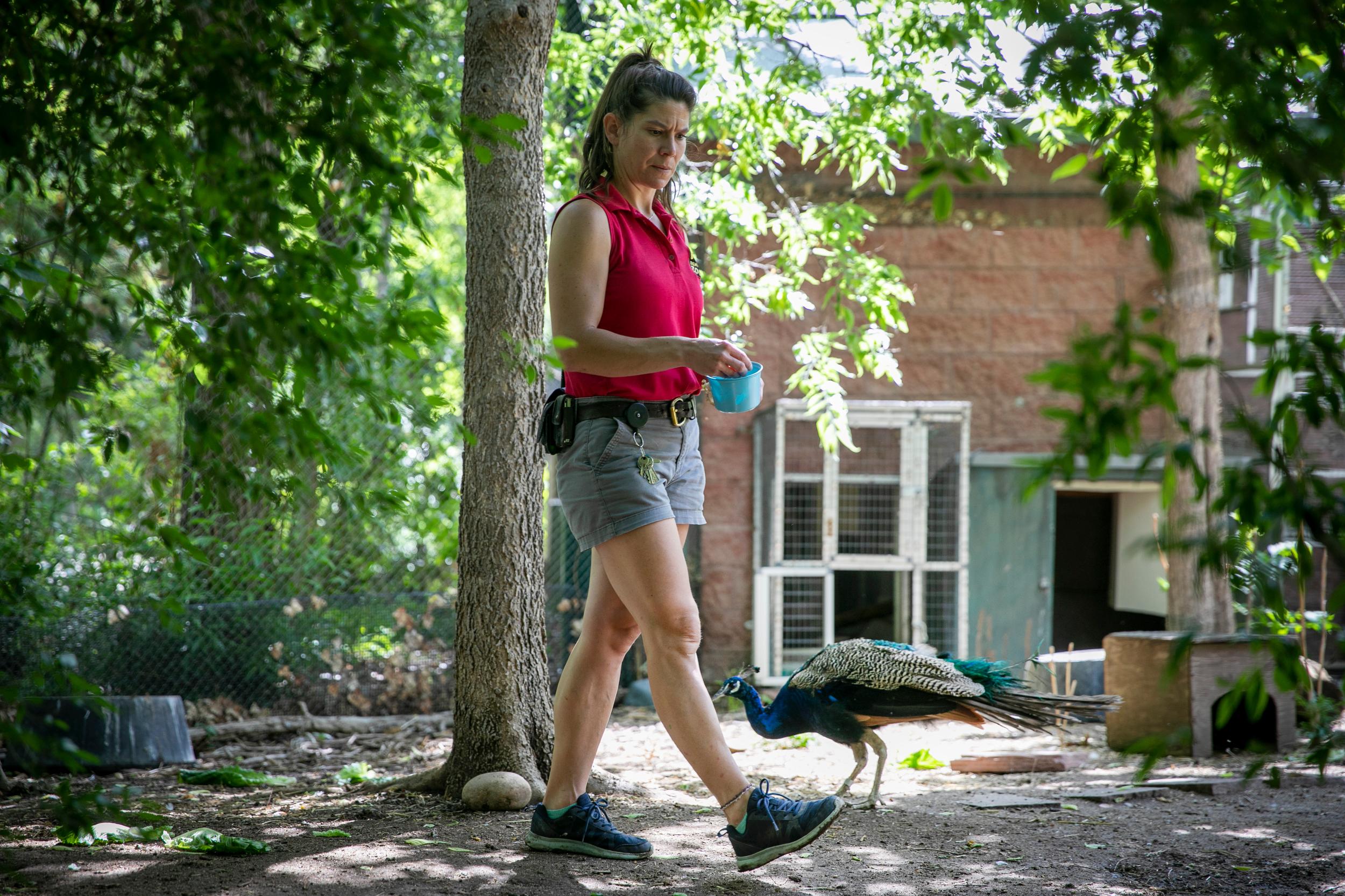
When the coronavirus pandemic first closed the gates to the Denver Zoo, CEO Bert Vescolani said even the animals noticed the crowds were gone.
“You walked through the zoo and they were, ‘Where is everyone? What's going on?’” Vescolani said. “They provided a lot more attention to all of us that were at the zoo trying to keep an eye on a place.”
While the animals curiously met their new reality, Vescolani remembers those early days of the shutdown were filled with uncertainty.
“It was scary,” he said. “It was sad. It didn't feel very good to not have this public organization open to the public. We felt that nature is pretty resilient in many ways, and if we can learn from that we'll be good.”
The coronavirus pandemic affected almost every facet of the zoo’s operations, from opening to the public in Colorado to its conservation efforts abroad in countries like Botswana, Peru, Vietnam and Mongolia.
“We were not an organization that obviously can shut off the lights, close things up, walk away and come back,” Vescolani said.
There were around 3,000 animals that depended on the zoo’s personnel, who also faced cuts after so much lost revenue and reduced visitors.
But zoo officials said the animals’ well-being is always their top priority. Even in lean financial times, that means animals never miss a meal.
“We've never compromised on their care and never would,” Vescolani said. “We'd make all kinds of other adjustments before we do that.”
During the warm summer months, the zoo’s gates finally reopened. At first, the Denver Zoo could welcome enough visitors to hit 25 percent of their capacity. And eventually that became 50 percent, with plenty of room left to space out guests and sell tickets with timed entry.
“I'd be lying if I didn't say it. There were a lot of days where we're like, ‘How are we going to get through this?’” Vescolani said. “We’re feeling more confident than we were a couple of months ago, and we continue to get more confident.”
Confidence is in short supply when looking at how various cultural institutions and entertainment venues have been affected by COVID-19. Vescolani said it’s the city — and its residents — that kept his hopes up.
“Our community really came out for us,” he said. “They help support us with donations. They wrote us letters. It was pretty dramatic. It was an experience that I've never had — to see that community love come out for an organization that's been around for 124 years.”
Since March, the zoo has pivoted operations and made changes several times. Vescolani said that although hand sanitizer was always in steady supply at the zoo, they did have to make adjustments to this year’s annual holiday event Zoo Lights, including extending its run into January to give guests more chances to visit and keep a safe distance from other households.
Officials are shrinking the size of this year’s summer camps to lessen the chance of an outbreak. Their global conservation efforts have shifted to using teams made up of locals in those areas instead of sending its Denver researchers abroad.
“We've learned a lot. We've developed a lot, we've found new strategies, new ways,” Vescolani said. “We've got some things that we learned that we are probably likely to continue in 2021, like time ticketing has spread our guests' experience out in a really meaningful way.”
But the pandemic means the zoo has a way to go before it returns to the way things were. Some future plans have been put on hold, and officials said they’ve adjusted their 2021 budget in response to the park’s reduced capacity. Vescolani said he hopes more visitors and donations will see them through their 125th anniversary next year.
“I would say there's a guarded and cautious optimism,” Vescolani said. “I wouldn't say that if I didn't see what our team was able to achieve and how our community has responded. It has just been great.”









